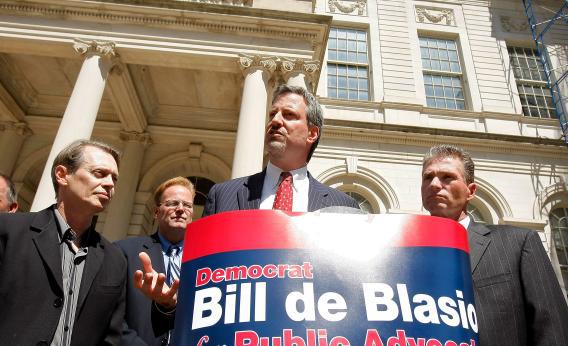Peter Beinart has a smart essay linking Bill de Blasio’s successful political campaign to a broader social and political interest in rejecting the business-friendly brand of Democratic Party politics pioneered by Bill Clinton and largely followed by Barack Obama.
It’s a great piece and you should read it. But here’s the thing. De Blasio’s campaign message and its strong focus on inequality is definitely a populist break with Clintonite politics. But his campaign agenda of higher taxes on a small slice of wealthy people in order to finance increased investments in early childhood education fits extremely comfortably inside the current Democratic Party consensus. Just ask Lawrence Summers who thinks that “the current tax system is, in certain ways, manifestly unfair at a time of rising inequality” and that “there are fairly expensive aspects of the current tax system that favor the most fortunate – aspects that border on the indefensible.” At the beginning of this year, no less a mainstream Democrat than Obama himself rolled out a proposal for universal preschool paid for with progressive tax increases.
In part this all simply confirms what Beinart is saying—the mainstream of the Democratic Party is to the left of where it was 10 or 15 years ago.
But I think it also problematizes it. There’s a clear hunger in the Democratic Party’s base for more left-wing measures than they’re getting from the Obama administration and its neoliberal sellout lapdogs. But the main reason we don’t have higher taxes on the wealthy to finance more domestic social services spending isn’t the neoliberal sellout lapdogs—it’s congressional Republicans.
